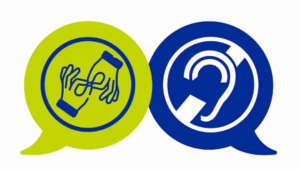As an interpreter (and particularly a medical interpreter), learning medical terminology is a vital part of the job. Without a basic understanding of medical terms and phrases; your interpreting sessions can’t proceed smoothly. It can be daunting: the medical field is vast and complex so medical terminology is often complicated and highly nuanced. Luckily, you don’t need to know everything: a general knowledge of common appointments, doctors, and terms works perfectly well. Setting a proper foundation for your medical interpreting work allows for confidence, professionalism, and flow. In this article, we’ll discuss the importance of knowing medical terminology and how to build your knowledge base.

Why is knowing medical terminology important?
Job preparation is one of the most important parts of an interpreting session. Whether you’re with an agency, a fully independent contractor, or employed full-time, knowing what to expect is key. Having a basic knowledge of medical terminology allows you the confidence to handle any situation that arises.
The medical field is truly overwhelming: there are specialties and doctors and phrases for any ailment or condition. Medical terminology is rather like its own language: rooted in academics, science, and ever-changing. Luckily, most medical appointments are at least somewhat conversational in tone: patients aren’t generally medical professionals. This allows you quite a bit of flexibility in your role as the interpreter.
Your role as interpreter
You don’t need to be a medical professional, but you do need to have a broad understanding of their language. Medical providers have a goal: to explain conditions and treatments to their patients. To do so, they try to use language that is easily understood by patients. This is the first line of defense against patient misunderstanding. However, some words or phrases catch you off guard: you might not have heard them before. In this case, your knowledge of basic medical terminology comes in handy. Knowing the roots of words and the context in which the doctor’s using them helps the session flow.
Having a basic understanding of medical terminology also contributes to your professionalism. A provider is much more likely to request an interpreter who doesn’t need to constantly stop and use a dictionary. While having a dictionary is important and using one occasionally is acceptable; being prepared with the basics saves time. Every time an interpreter must pause to look up a word; they’re stepping out of their role as language conduit. This uses valuable patient and provider time; leading to discontent and breaking the flow. A much better alternative is preparing yourself ahead of time: knowing general terms and consistently building that knowledge.
How do I learn basic Medical Terminology?
We all agree that learning medical terminology is important, but what’s the best way to go about it? With so many medical specialties and terms. It’s tough to know where to start! With this in mind, Global Arena put together an interactive, eLearning medical terminology course. Our program will help you to gain the necessary medical understanding to successfully provide Medical Interpreting assignments.
Our elearning medical terminology course
The course is designed for interpreters of all skill levels. It aims to give a better understanding of medical interpreting terminology and basic anatomy. This course is also suitable for professionals who want to incorporate interpreting practices into their work. These situations require a broad working knowledge of anatomy and physiology. By the end of the course, you’ll know the major bodily systems, human anatomy, specialists, and diagnostic procedures. Medical Terminology for Interpreters also includes a glossary with spaces to write words and phrases in your target language.
The course is timed to last 120 minutes, though you can always revisit a module for better comprehension. It consists of informational modules and an exam with a certificate upon completion and a passing exam result. Each module consists of a variety of informational slides, both lecture and interactive. These slides aim to broadly engage participants, ensure information retention; and encourage application. The e-learning version of the course is entirely online and easily accessible from our e-learning platform: no downloads required. We regularly update the information to meet current standards.
Already interested in expanding your medical terminology knowledge? Visit our Medical Terminology for Interpreters page and get started!
The course creation process included collaboration with medical professionals, including general practice doctors, specialists, nurses, and university professors and researchers. It consists of twelve modules. Module one covers common specialists, diagnostic procedures, and scans. The next modules correspond to each bodily system: skeletal, circulatory, respiratory, muscular, gastrointestinal, integumentary, nervous, immune, endocrine, renal/urinary, and reproductive. The course provides a basic knowledge of all of these systems, including functions, anatomy, processes, and common maladies and injuries.
If you need additional information, please feel free to Contact us




